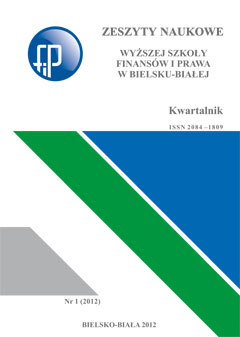EFFECTS OF AUTOMATION AND ELECTRONIC DEVICES ON BOARD AIRCRAFT ON PILOT SKILLS, TRAINING REQUIREMENTS AND FLIGHT SAFETY
EFFECTS OF AUTOMATION AND ELECTRONIC DEVICES ON BOARD AIRCRAFT ON PILOT SKILLS, TRAINING REQUIREMENTS AND FLIGHT SAFETY
Author(s): Daniela FICOVÁ, Benedikt Badánik, Marek TURIAK, Andrej Novák, Alena Novák SedláčkováSubject(s): Security and defense, Military policy
Published by: Wydawnictwo Wyższej Szkoły Finansów i Prawa w Bielsku-Białej
Keywords: automation; future aircraft cockpit environment;human-machine interface; safety challenges; situational awareness; skills degradation; training; EFB; electronic flight bag; tablet, VFR;AMC 20-25;
Summary/Abstract: The present and future challenges of commercial air transport industry requiremaintaining growth trends in air traffic and at the same time easing congestion in theskies without compromising high safety standards. This all leads to natural evolution ofthe aircraft cockpit environment. The progress starts now with implementation of headupdisplays, airport moving maps, interactive electronic checklists, enhanced visionusing infrared cameras to enable night time vision and synthetic 3-D vision systems. Inthe future, technology development will continue with I4D operations, digital taxi realtimeuplink of the cleared taxi route via Controller-Pilot Data Link Communication andmuch more. These modern cockpit features and their necessary future upgrades enablepilots to capitalize on their strengths and help them manage their weaknesses.Information from these systems are presented to the pilots in transparent manner whichmakes their decision-making process more efficient and safer, especially under stress.Taking into consideration future trends in the cockpit environment, the growth of the airtransport and safety requirements, it is necessary to review the role of pilots. Aviation isa sphere where progress and continuous innovation is inevitable. Therefore, it isnecessary to keep up with the evolution and adapt also the pilot training and education.Many major world top rated airlines have already implemented for example evidencebasedtrainings as they realized that the role of the pilot in the cockpit is changing. Thebasic pilot skills are essential but in today’s air transport operation we also need totake into account that pilots need to have certain managerial skills and thereforebalance the training accordingly to make it more efficient. Whether we like it or not, thetimes of visual approaches and manual flying, especially in big commercial operations,are slowly disappearing. We need to understand this progress and adjust the structureof the pilot training accordingly to be able to deliver the best level of safety efficiency.The paper also deals with the use of portable multimedia devices for VFR flights. Itexplains the basic terms concerning the use of portable electronic devices on-boardaircraft. It analyses the relevant international and national legislation for the use ofportable electronic devices on-board aircraft. It includes a survey of the availabledevices, accessories and software on the market. An analysis and comparison of thedevices, based on their technical specifications is included as well. The paper also dealswith various aspects of the use of portable multimedia devices for a flight school. Itreviews the whole process of selecting a suitable operating system, device, accessoriesand software with an example of calculation of the required financial expenses.A comparison of the devices based on the battery life in relation to the selected aircraftis also included. Furthermore, the paper considers the mounting options of the devicesin the cockpit, points out to required changes in the operational procedures within theflight school and highlights the potential assets which application of portable electronicdevices brings.
Journal: Zeszyty Naukowe Wyższej Szkoły Finansów i Prawa w Bielsku-Białej
- Issue Year: 2016
- Issue No: 4
- Page Range: 242-269
- Page Count: 28
- Language: English

